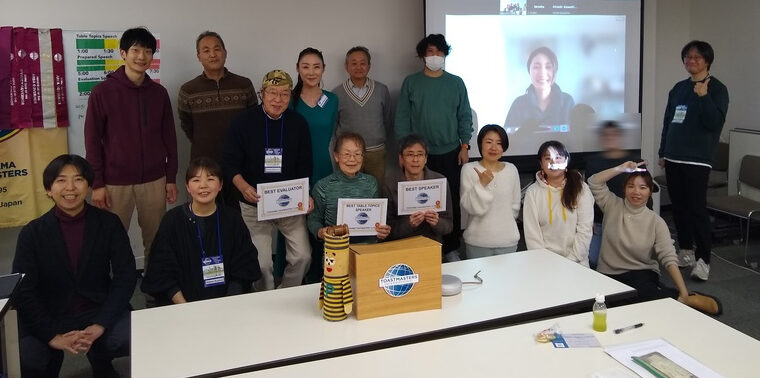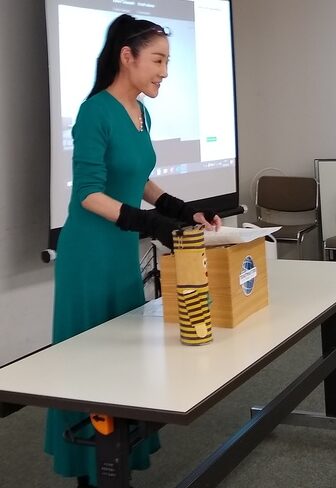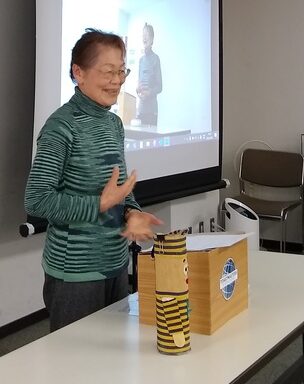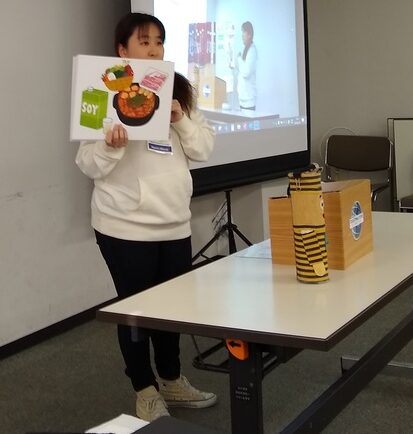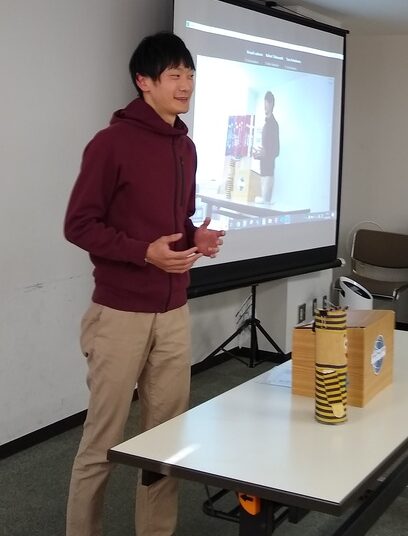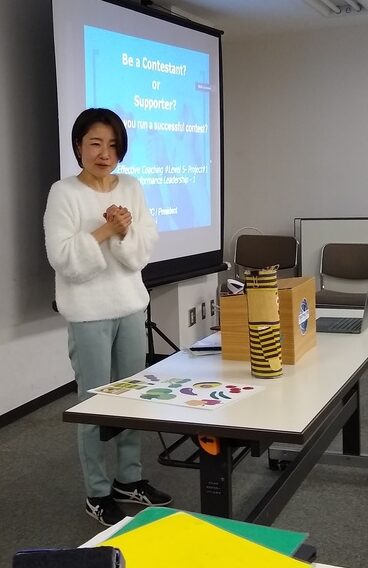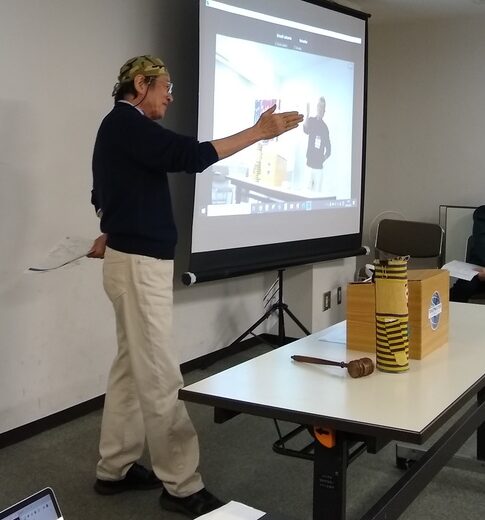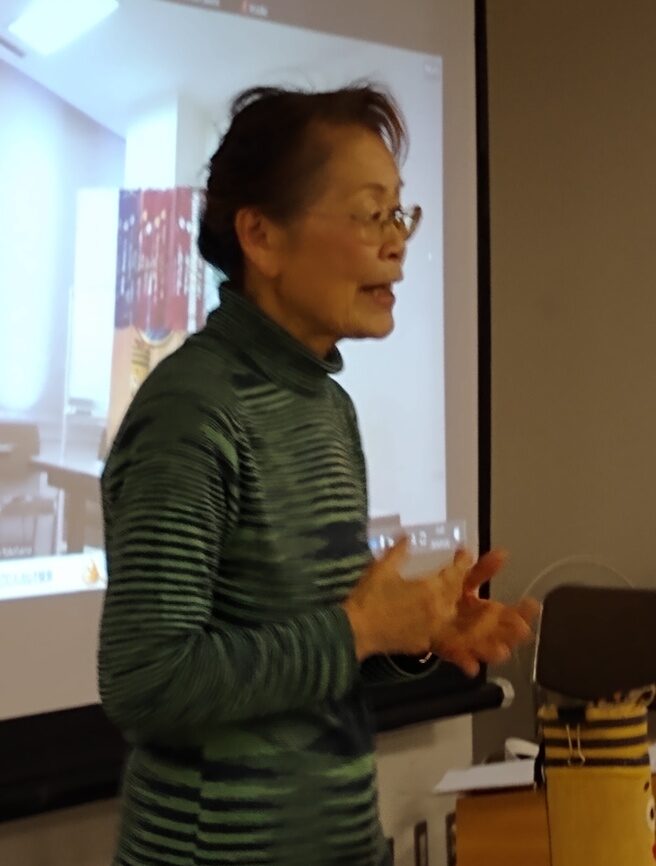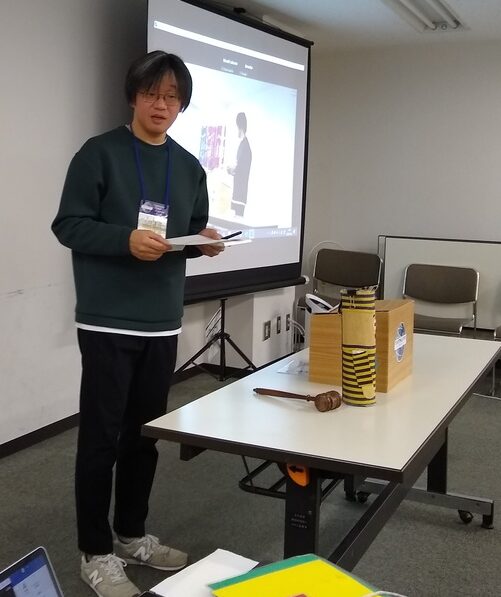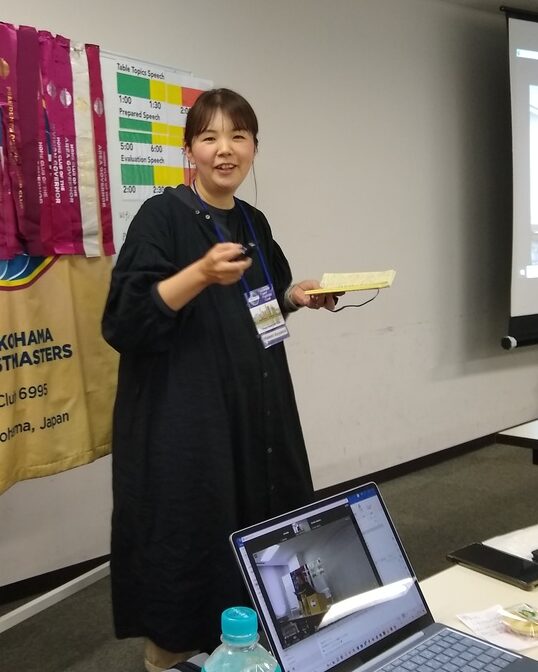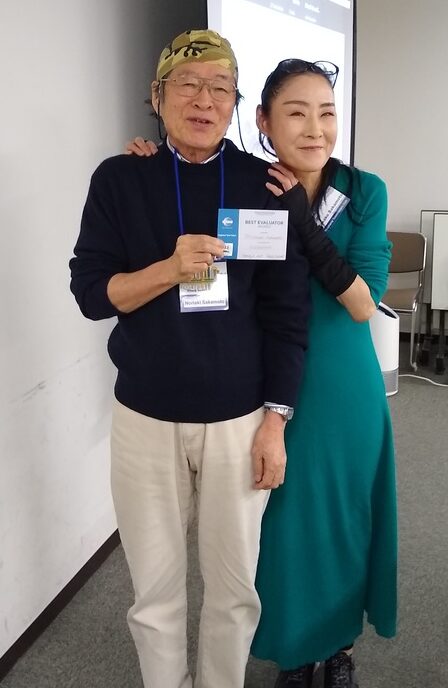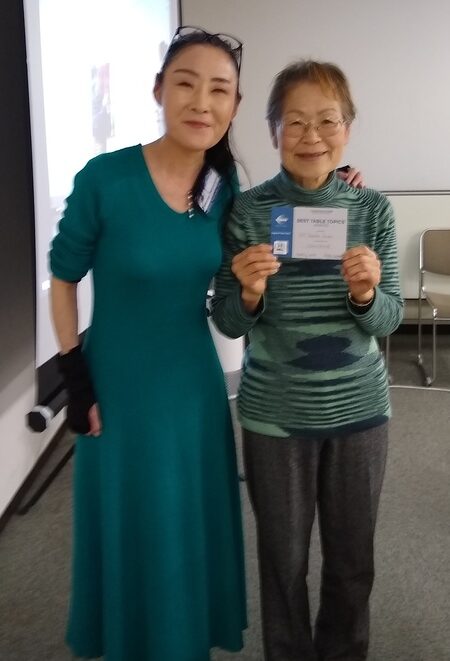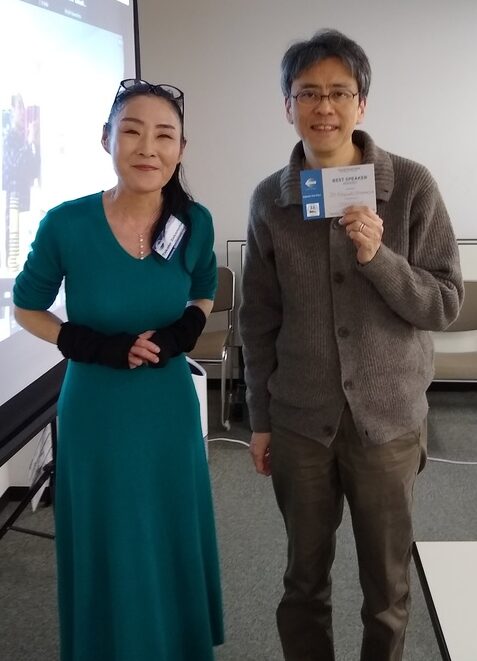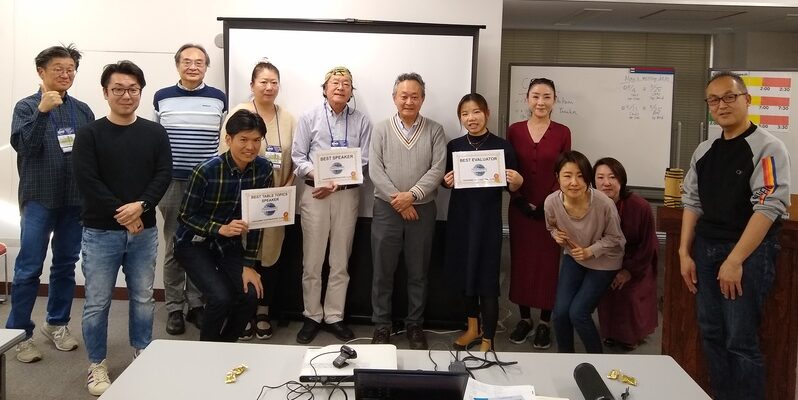
Our 806th regular meeting was held on a warm spring day at the seaside venue, Hatoba Kaikan, in Yokohama. Although the meeting opened on schedule, there were some technical glitches that disabled the online participants to hear us, and the meeting ran overtime by 10 minutes. However, thanks to the fabulous effort of TMOD (Toastmaster of the Day, a MC) TM M, the meeting proceeded smoothly.
Also, two guests added the extra energy to our meeting. One was an ex-member who visited us after 7 years absence, long time no see! and the other was a first-time visitor.
In the beginning of the meeting, the Area D2 contest chair, TM K, presented the 2nd place award to the Japanese contest winner, TM T, who challenged the official contest for the first time in his Toastmasters journey. Congratulations, TM T, for your great achievement!
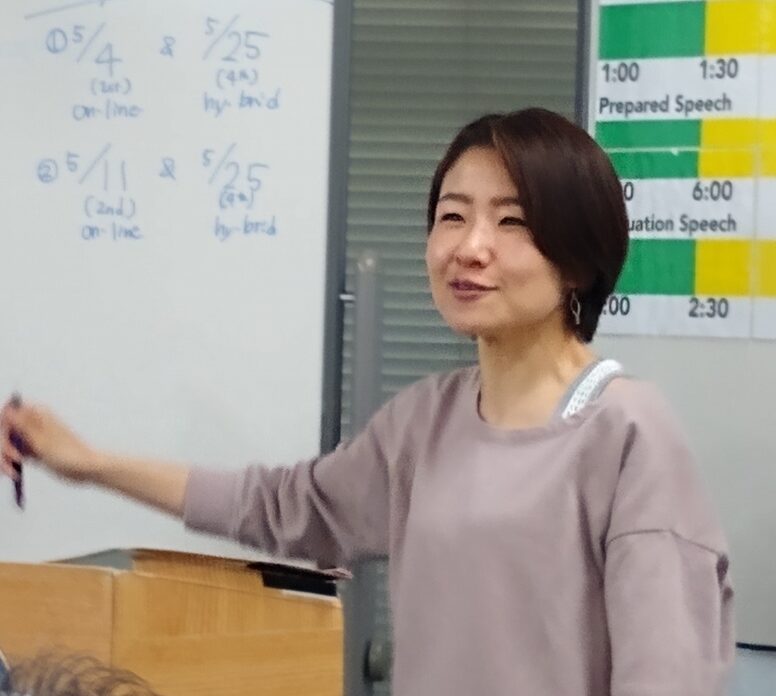
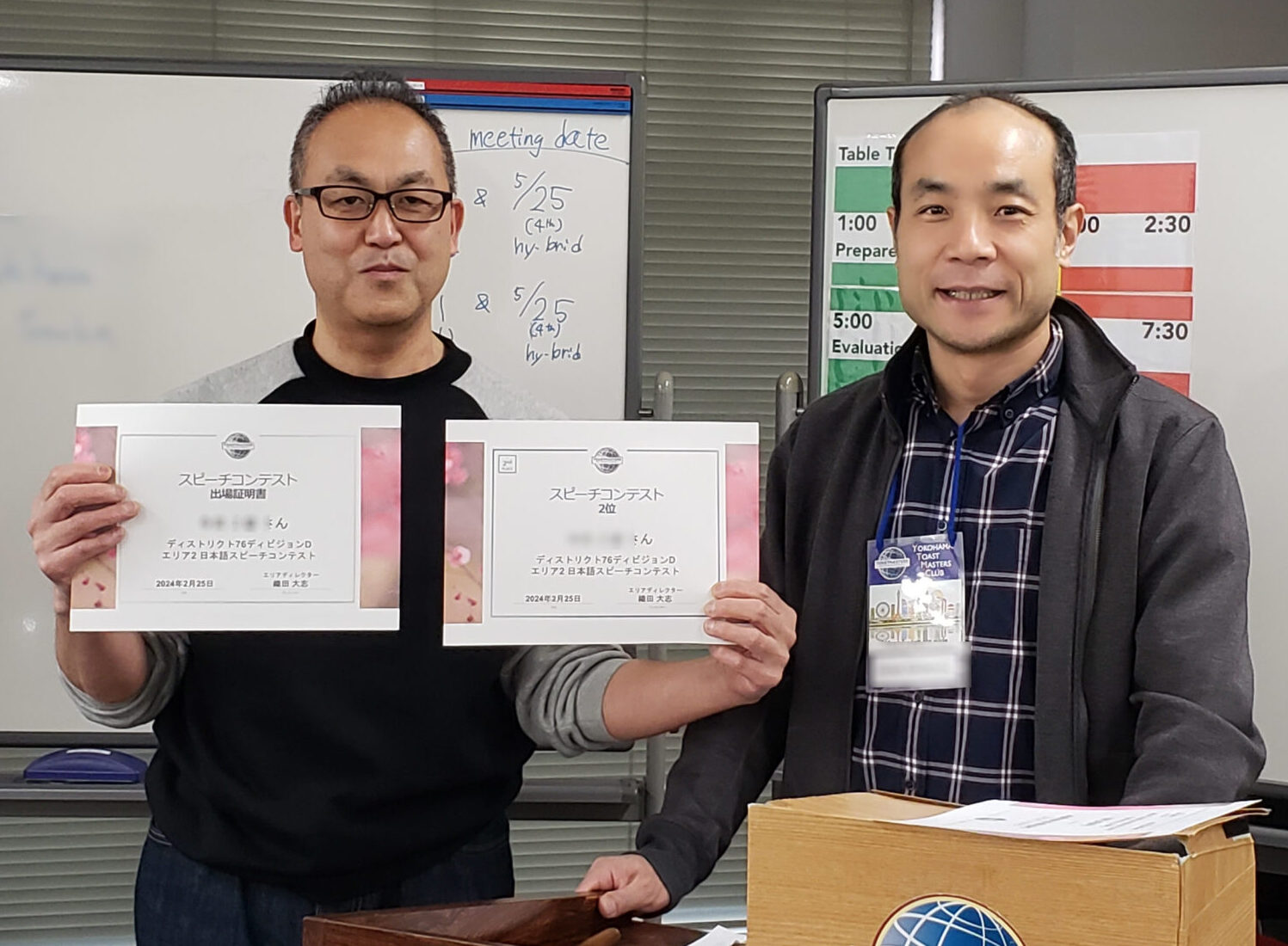
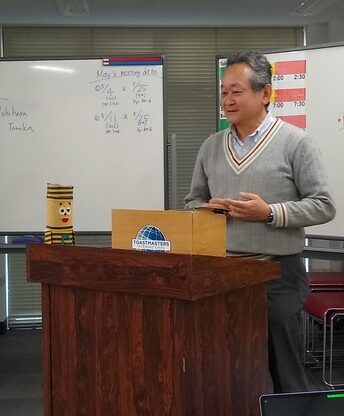
Following the award presentation, the Word of the day ‘promising’ was introduced by an online-participant, TM T, and many people used it during the meeting.
Table Topics Session was so much fun! The Table Topic Master, TM T, took the hint from the currently popular TV Drama called ‘Futekisetsunimo Hodoga-aru’, which is about the man who lives in the 1980s and travels time to the year 2024. He does some super inappropriate things in 2024 which were widely accepted in the ‘80s, and cause commotion. The questions TM T came up with were as follows,
- What do you think about harassment?
- What do you think about the entertainment in the Showa era and Reiwa Era?
- What do you think about high school uniform in each era? Which uniform do you want to wear?
- What do you think about the education in each era?
- Which do you like, Showa era or Reiwa era?
Since many members have lived in both eras, some talked about their memories in the Showa era with longings and nostalgies, and with some self-deprecation.
The ex-member who visited us won the Best Table Topics Speaker Award by talking about the difference in education between Showa and Reiwa eras.
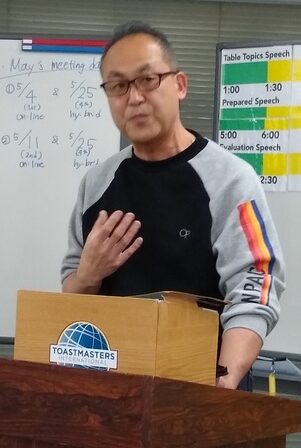
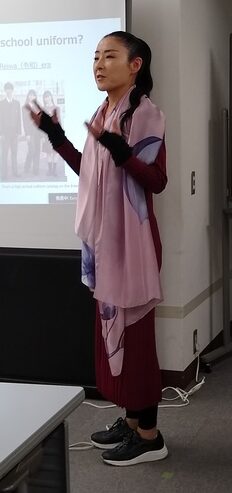
We had three prepared speeches on this day, but the funny thing is, although they were supposed to be ‘PREPARED’ speeches, no one in the three had prepared their speeches!
The 1st speaker, TM S, talked about the Big Bang and Universe followed by an interesting Q&A session. Since he explained the basics of the emersion of universe in laymen’s terms, the audience was truly intrigues and able to understand the complicated theory relatively easily. His speaking attitude was casual and friendly, which enhanced the understanding of the audience who were charmed by his speech.
The 2nd speaker, TM A, presented her knowledge about ‘Professional Conference Organizations’, one of which she worked for in the past. Again, the audience was intrigued by her stories and deepened their understanding of these organizations.
The 3rd speaker, TM O, talked about what he’s been into lately, which is…a Boat Race! He passionately explained how interesting it is to anticipate the winner of the race, how handsome and pretty boat racers are these days, etc. We had a lot of fan listening to his ‘Oshi (highly recommended)’ activity.
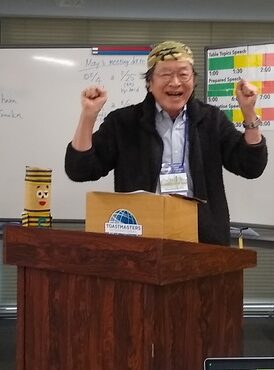
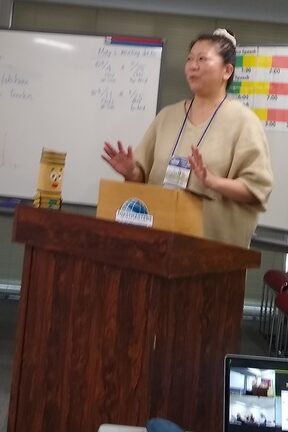
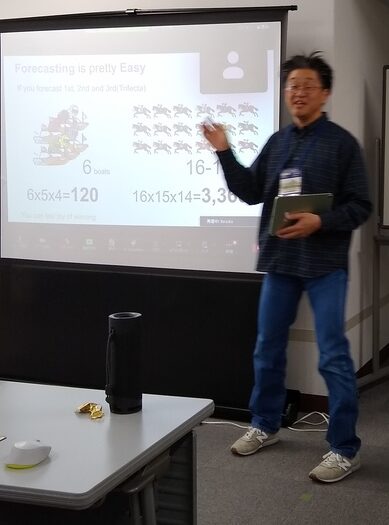
The evaluation session followed the prepared speech session. It was facilitated by the first-time General Evaluator, TM S, and he smoothly controlled the whole session. In the general evaluation part, he covered every aspect of the meeting in a sincere and amicable way and amazed us. Three Unprepared speakers!? were evaluated by experienced evaluators, and TM S, who evaluated the 1st speaker’s speech amicably with smart observation won the Best Evaluator Award. The 3rd evaluator gave her evaluation online while feeding milk to her baby, which made everyone smile and happy.
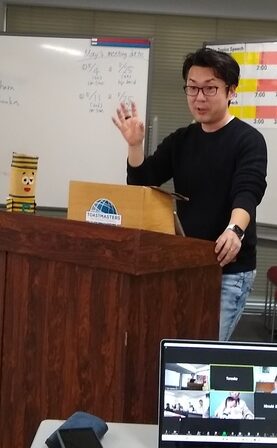
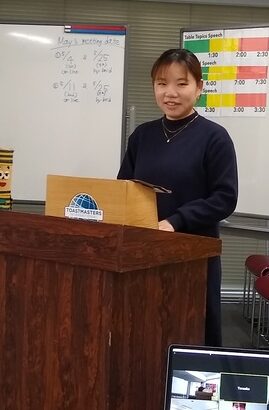
The Grammarian, TM O, shared an interesting information with us. He explained the difference among Expect, Anticipate and Forecast. According to him, they all mean the same, but the difference is the probability and the amount of hope. When you ‘expect’, there is a higher probability that something will happen, and also there’s a hopeful thinking here. When you ‘anticipate’, you have a lower probability with a wishful thinking. When you forecast, no emotion is involved. There’s no hopeful thinking. It’s just a fact-based, scientific prediction. For further information, please refer to your dictionary!
The meeting successfully ended with an award presentation to the three winners. Congratulations! And thanks TMOD M for your professional facilitation!
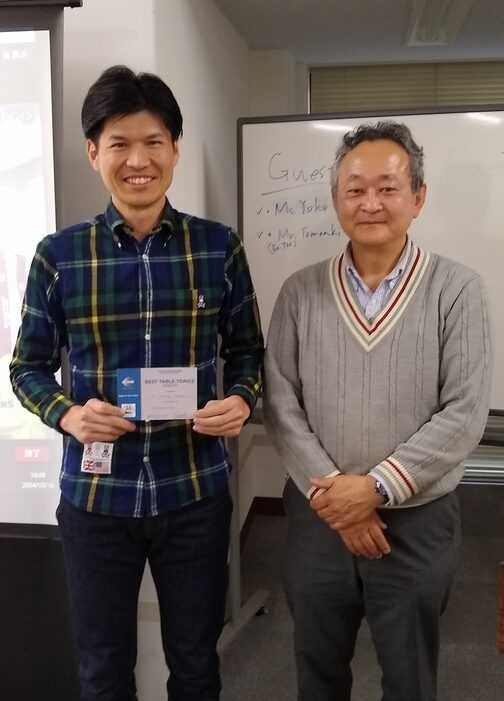
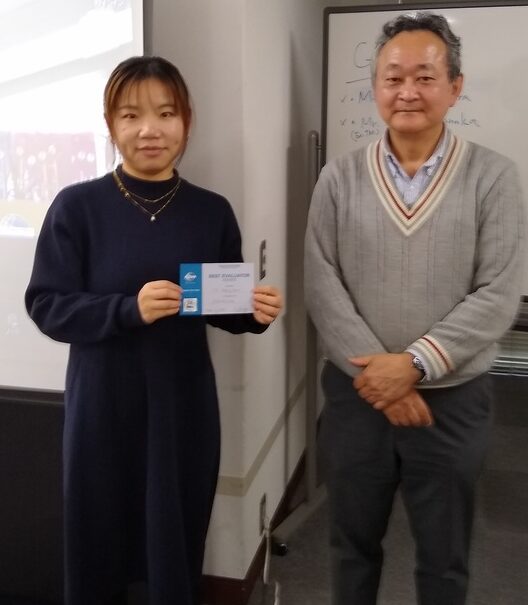
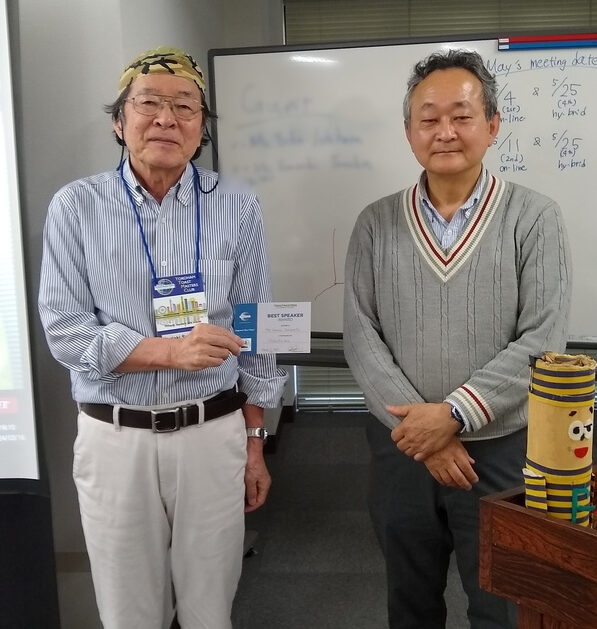
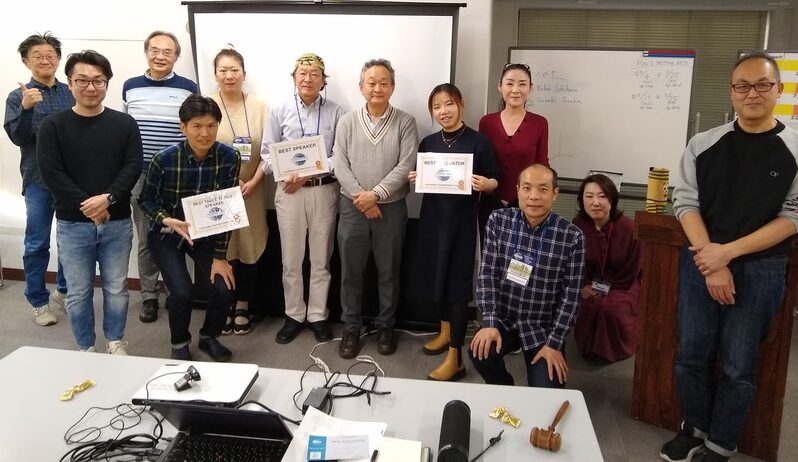

横浜トーストマスターズクラブ第806回例会は、春を思わせる温かな日差しの中、横浜港内のホームグラウンド波止場会館で開催されました。例会は予定通りに始まりましたが、技術的な問題 (Zoom) により10分程度中断し進行が遅れました。しかし、TMOD(Toastmaster of the Day、MC)TM Mの渾身の努力のおかげで、その後はスムーズに進行しました。 また、2人のゲストの存在も、例会にパワーを与えてくれました。ゲストのうちの1人は7年ぶりに訪ねてくれた元メンバー、もう1人は初めての訪問者でした。
例会の冒頭、エリアD2コンテストチェアのTM Kが、初めて公式トーストマスターズコンテストに挑戦したTM Tに日本語部門2位の賞状を授与しました。TM Tさん、素晴らしいご活躍おめでとうございます!
この日の「言葉」は「promising/有望な」で、オンラインで参加したTM Tが紹介してくれました。使いやすいことから、多くのメンバーが例会中に使用できました。
さて、この日のテーブルトピックセッションは猛烈に楽しかったです!テーブルトピックマスターであるTM Tは、現在人気を博している民放テレビドラマ「不適切にもほどがある」からヒントを得て質問を考えたそうです。このドラマは、1980年代に生きる主人公がタイムスリップして2024年にやってきて、不適切発言、行動を連発し大騒動を起こすというストーリーです。TM Tが考えた質問は次のとおりです。
- ハラスメントについてどう思いますか?
- 昭和と令和のエンターテインメントについてどう思いますか?
- 各時代の高校の制服についてどう思いますか?どちらの制服を着たいですか?
- 各時代の教育についてどう思いますか?
- 昭和と令和、どちらの時代が好きですか?
多くのメンバーが双方の時代を生きてきたので、昭和の思い出について、懐かしさや郷愁たっぷりに話す人もいれば、少し昭和を自虐するような話しぶりもありました。結果このセッションでは、ゲスト参加した元メンバーが、昭和と令和の教育の違いについて理路整然と話し、最優秀テーブルトピックスピーカー賞を受賞しました。
この日は準備スピーチが3つありましたが、面白いことに、「準備」スピーチを行うはずのスピーカーは3人とも未準備! 1番目のスピーカーのTM Sは、ビッグバンと宇宙について語り、その後興味深い質疑応答セッションが続きました。宇宙誕生の基礎を素人にも分かりやすく説明してくれ、私たちは複雑な理論を比較的簡単に理解することができました。彼のカジュアルでフレンドリーな語り口に聴衆は魅了されました。2番目のスピーカーであるTM Aは、過去に働いていた「プロフェッショナル会議団体/PCO」に関する知識を披露してくれました。知らない組織について理解を深める機会が得られたスピーチでした。3番目のスピーカーTM Oは、彼の最近のいち押し、ボートレースについて熱く語ってくれました。レースの勝者予測がいかに楽しいか、いまどきのボートレーサー達がどれほどイケメン、または美女であるかなどをとうとうと説明してくれました。
準備スピーチセッションに続いて、評価セッションが行われました。初めて総合評価者に挑戦したTM Sは、セッション全体をスムーズにコントロールしてくれました。総合評価の部分では、例会のあらゆる場面を誠実で親しみやすい態度でカバーし、論評してくれました。3人の未準備?!スピーカーは、経験豊富な論評者からの評価を受け、親しみやすい雰囲気でスマートな評価を行った1番目の論評者TM Sが最優秀論評者賞を受賞しました。3番目の論評者は、赤ちゃんにミルクを飲ませながらオンライン評価を行い、皆を笑顔にしてくれました。
論評セッション中、文法担当のTM Oが興味深い情報を共有してくれました。「expect/期待する」「anticipate/予期する」「forecast/予報する」という言葉の違いを説明し、彼によれば、それらはすべて同じ意味だが、違いは確率と期待値だとのこと。何かが起こることを「expect」するとき、それが起こる確率は高く、ここには期待感が含まれています。「anticipate/予期する」場合、確率は低いが、ここでも願望があります。「forecast/予報」するときに感情は一切ありません。希望的な考えもありません。Forecastは事実に基づく、科学的な予測です。なるほど! 勉強になりますね。詳細については、みなさんそれぞれ辞書を参照してください!
3人の受賞者に賞を贈り、例会は無事成功裏に終わりました。受賞者のみなさん、おめでとうございました!そして、プロフェッショナルなファシリテーションをして下さったTM M、ありがとうございました!

